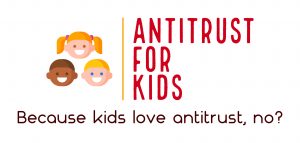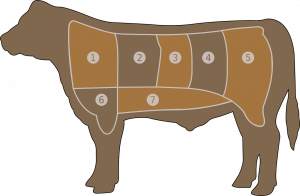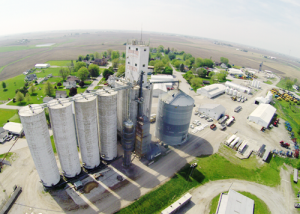Author: Molly Donovan
At Argo Elementary, a group of kids gathers daily at lunch to buy and sell candy. The trading activity is a longtime tradition at Argo and it’s taken very seriously—more like a competitive sport than a pastime.
Candy trading doesn’t end once a 5th grader graduates from Argo. It continues across town at Chicago Middle School—but instead of lunch, candy trading happens there at the close of each school day. (The middle school had banned lunchtime trading due to several disputes that grew out of hand.)
Now here’s where it gets complicated, and nobody knows why it works this way, but the average lunchtime price at Argo determines the starting price for trades later in the day at Chicago.
For example: the average selling price for a candy bar on Monday, lunch at Argo is $2.50. Monday after-school prices at Chicago also will start at $2.50.
There are rules about what kind of candy can be traded—so that one trade can be easily compared to another (candied apples-to-candied apples) for purposes of determining who’s “winning.”
And sometimes kids—particularly the older ones at Chicago—place bets on what will happen on a particular trading day in the future, e.g., I bet prices will reach $3 or I bet no more than 50 candy bars will get sold this Friday.
That’s it by way of background. Here’s our story.
Arthur D. Midland (“ADM”) is 9. He is the link between Argo and Chicago. Each day, ADM leaves Argo Elementary when school lets out, walks to Chicago Middle, announces the “start-of-trade” Chicago price based on the lunchtime Argo price, and Chicago trading begins. (ADM’s mother allows this because ADM’s older brother (Midas) also trades at Chicago—so the two boys can watch each other.)
At the start of the school year, ADM contrived a very clever scheme. He bet Midas that, on Halloween, Chicago prices would be very low—as low as $1. Midas said, “No way! September prices are already at $2.50. If anything, prices will increase as kids go candy crazy in October. I’ll take that bet.”
So, for every candy bar sold at Chicago on Halloween for $1 or less, Midas would owe ADM $1. And for every candy bar sold at Chicago for more than $1, ADM would owe Midas $1.
With that bet front of mind, ADM became the primary candy seller at Argo, and as Halloween neared, he flooded Argo with candy and sold it intentionally at very low prices—50 cents for a Snickers! (ADM had the requisite inventory because he was an avid trick-or-treater and had saved all his Halloween candy from years past.)
Due to ADM’s scheme, Argo prices got so low that some kids packed up their candy and went home—refusing to trade there at all.
Well, Halloween finally came and, as you can imagine, ADM made a killing on the bet—100 candy bars were sold at Chicago on Halloween at less than $1, forcing Midas to pay ADM his entire savings. This more than compensated ADM for whatever losses he incurred for under-selling at Argo.
Once Midas realized ADM’s trick, he was furious. Didn’t ADM cheat? Midas assumed—as did all candy traders—that bets derived from candy sales would be based on real—not artificial—market forces.
Did ADM get away with it?
So far, no.
My Muse: For now, plaintiff Midwest Renewable Energy has survived a motion to dismiss its Section 2 monopolization claim against Archer Daniels Midland.
The claim is based on allegations of predatory pricing—basically that the defendant’s prices were below an appropriate measure of its costs and that the low prices drove competitors from the market allowing the defendant to recoup its losses. (For more on predatory pricing, read here.)
In the ADM case, Midwest alleges that ADM manipulated ethanol-trading prices at the Argo Terminal in Illinois to create “substantial gains” on short positions ADM held on ethanol futures and options contracts traded on the Chicago Mercantile Exchange. Because the Argo prices determined the value of the derivatives contracts, by flooding Argo with ethanol that ADM sold at too-low prices, ADM allegedly was able to win big on the derivatives exchange—recouping whatever losses it incurred on the underlying asset.
On its motion to dismiss, ADM argued that Midwest had not sufficiently alleged that ethanol producers had exited the market due to ADM’s low prices or that ADM subsequently recouped its losses in the ethanol market. (ADM classed these arguments as going to antitrust injury.)
The Court agreed that Midwest was required to allege both that rivals exited the market and that recoupment was ongoing or imminent, but the court ruled Midwest’s allegations sufficient to do so.
Specifically, Midwest had alleged that 12 ethanol producers had either stopped or decreased ethanol production—which is enough at the motion to dismiss phase. The court said whether that alleged “handful” of plant closures had a discernible effect on consumers is a fact-intensive analysis not susceptible to resolution on the pleadings.
 The Antitrust Attorney Blog
The Antitrust Attorney Blog






